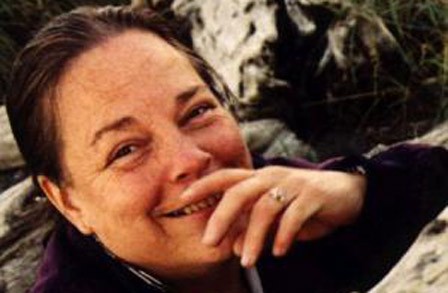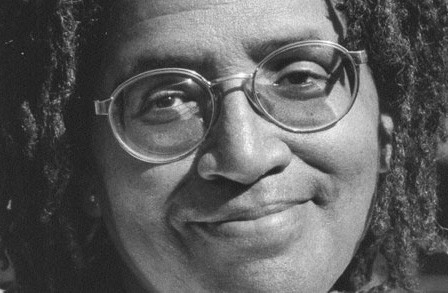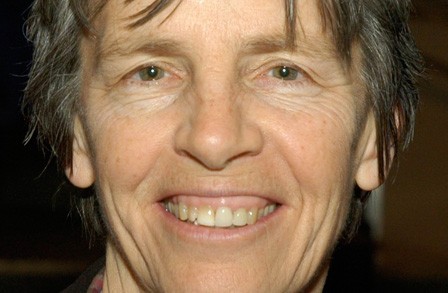Accessing LGBTQ poetry and discovering LGBTQ archives has never been easier, courtesy of online resources like this one. The purpose of this archive is to collect and discuss modern queer poets, usually through their poetry and other artifacts. However, finding lesser known names can be challenging, as can understanding the literary definition of contemporary and the different scopes of intersectionality associated with the queer community like gender identity, sexual orientation, and race. To help remedy this, I’ve compiled six resources so readers can better understand the terminology and authors highlighted in this blog. These websites cover queer definitions, literary definitions, and lists of accessible poets in hopes LGBTQ poetry can become better understood and more accessible.
- Academy of American Poets, “LGBTQ Poetry” (https://www.poets.org/poetsorg/lgbtq-poetry)
This is a wonderful resource for those interested in LGBT literature. By focusing on certain movements and populations, such as the LGBT community, poets.org hopes to empower individuals and provide them literary resources to explore. This LGBTQ literay archive includes featured poems, featured audio, featured essays, and featured books from author such as Audre Lord, Mark Doty, and A.E. Housman. Even if your primary interest isn’t in poetry, this website provides other ways to access LGBTQ poets and their inspirations.
2. Poetry Foundation, “LGBTQ Pride Poems” (https://www.poetryfoundation.org/features/articles/detail/69805)
An article created to celebrate Pride Month in June, the Poetry Foundation (founder of Poetry magazine) also ties poetry to the LGBT community, focusing especially on the contemporary period. According to the introduction, the celebration of Pride is to “stop to remember the Stonewall rioters… and take a moment to appreciate the beauty and goodness of our queer lives.” To accomplish this, the article has poems under three categories: “Feeling Proud at Pride”, “Feeling Ambilant at Pride”, and “Queer Poets on Queer Poets.” These should help people of all interests and affiliations, even just the everyday literary buff, to tap into queer poetry.
3. Advocate, “Seven Queer Poets You Should Know” (http://www.advocate.com/arts-entertainment/2013/11/18/7-queer-poets-you-should-know)
If you ever wanted a solid framework when thinking about contemporary queer poetry, this article is a good resource. “Queer” by Frank Bidart is a pivotal poem you’ll find in many queer archives and gives a unique perspective of what “queer” means to the LGBTQ community. Other authors, such as Blanco, Peterson, and Myles, I’ve already discussed in my blog. However, this article provides additional excerpts and links to better tap into their poetry. I would highly encourage looking into all seven authors to gain a variety of perspectives about the queer poetry movement.
4. Reference, “What is Contemporary Literature?” (https://www.reference.com/art-literature/characteristics-contemporary-literature- 24f12fd15cbf9c6e)
This article helps explain contemporary literature and its characteristics. For those that do not know what this archive means when referring to “contemporary” poetry, it’s works that are generally published and circulated post-WWII, or from the 1940s to today. It notes how literary perspective and global perspectives changed after the World Wars and how social, political, and theological movements were set into motion because of this, including the idea of intersectionality. The information from this article originally came from the College of Dupage.
5. CARE2, “What is Intersectionality and Why Is It Important?” (http://www.care2.com/causes/what-is-intersectionality-and-why-is-it-important.html)
Intersectionality is a concept I discuss often but may be new to many readers. This explanation of the social theory may be beneficial in understanding it and how it incorporates privilege, identity, and discrimination. The article provides a good history of its origins and modern application as well. While my archive focuses on sexual orientation and gender identity (hence LGBTQ poetry), those identities overlap with others like race and ethnicity. When discussing an author’s influences, I believe it’s important to look at all aspects of the individual and how they interact, making intersectionality important. CARE2 is a social awareness network that partners with other prominent organizations:






6. American Psychological Association, “Sexuality Definitions” (https://www.apa.org/pi/lgbt/resources/sexuality-definitions.pdf)
As mentioned above, LGBTQ poetry focuses especially on sexual orientation and gender identity. For those not as familiar with the LGBTQ community, it can be easy to mix these ideas up. Many people assume transgenderism is a sexual orientation like the other main three in the queer community’s acronym. This resource can help clear up this kind of confusion. The following APA guide compiled definitions for sex, gender, gender identity, gender expression, and sexual orientation. It also links other APA resources for the LGBT community and their terminology.











